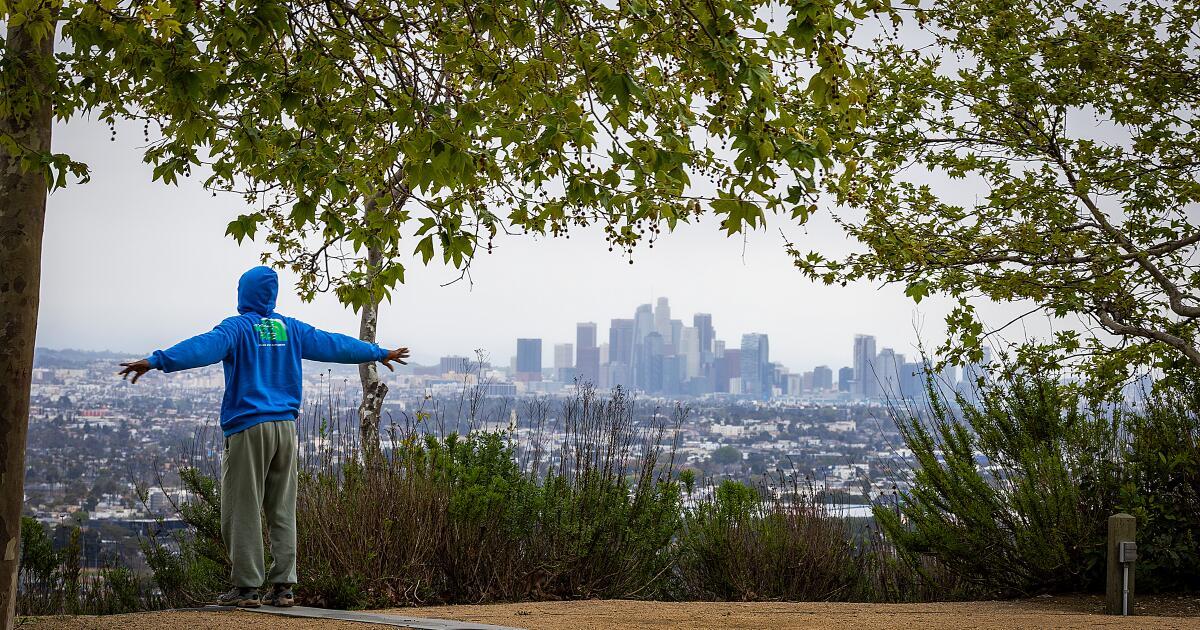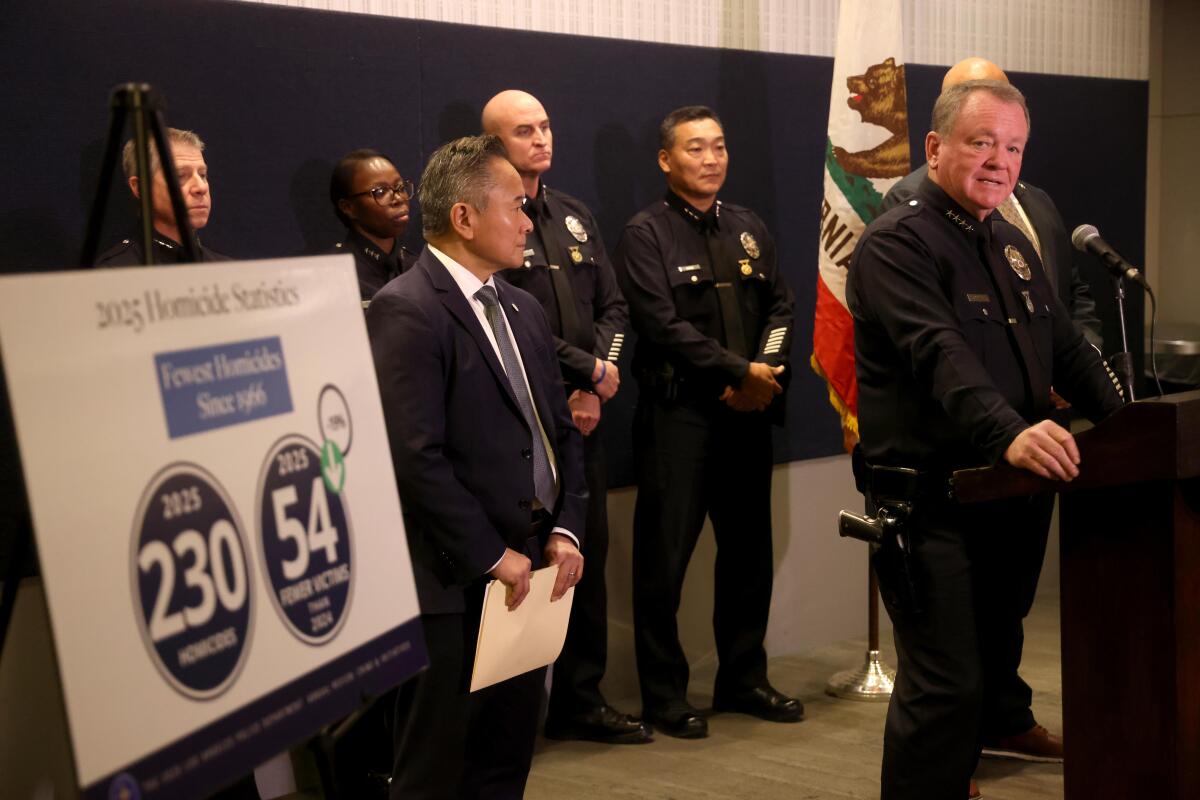Culver City, a crime haven? Bondi’s jab falls flat with locals
Conversations about Culver City — the vibrant enclave on Los Angeles’ Westside often called “the Heart of Screenland” — usually include phrases such as “walkable” and “green spaces” and “Erewhon.”
So when U.S. Atty. Gen. Pam Bondi insinuated the city of 39,000 residents is a crime haven during a heated exchange with Rep. Sydney Kamlager-Dove (D-Los Angeles) Wednesday, local officials and personalities responded with statistics, memes and wry mockery.
Bondi slipped in the jab near the end of an arduous House hearing largely focused on the Department of Justice’s handling of the Jeffrey Epstein investigation. Kamlager-Dove, whose district includes Culver City, hammered Bondi over deleted Department of Justice data linking far-right ideology with political killings, asserting that “there are violent, dangerous people out there with real threats.”
“There are — in your district,” Bondi responded. “Her district includes Culver City, and she’s not talking about any crime in her district. Nothing about helping crime in her district. She’s not even worth getting into the details.”
Hometown names stepped up to defend the burg by posting photos of clean streets, manicured parks and humming community events.
Political commentator and Angeleno Brian Taylor Cohen called the city “one of the most non-controversially safe” places in L.A., while Culver City-based comedian Heather Gardner said: “The worst crime of the century is that this woman had made a mockery of our justice system. Release the un-redacted files. Prosecute the REAL crimes.”
Kamlager-Dove shrugged off Bondi’s comment, saying Culver City was known for “breakfast burritos — not crime.”
The Justice Department did not immediately respond to a request for Bondi to clarify her statements.
Crime in Culver City declined 9.7% in 2024 and was down an additional 6.1% in the third quarter of 2025 compared with the same period of 2024, according to the Culver City Police Department. Violent crime declined 3.9% in 2024 — the last full year of available data.
Over that period, murders dropped to zero while aggravated assault, kidnapping and robbery also fell. There were 26 cases of sexual assault in the city in 2024, compared with 25 in 2023. The only violent crime that saw a significant increase were simple assaults, which rose 8.1%.
The California Department of Justice and the FBI reported in 2024 that crime in the state had fallen to “among the lowest levels ever recorded.”
Mayor Freddy Puza, in an interview Thursday, described Culver City as a “strong and vibrant community” of people with no shortage of job opportunities at small businesses and corporations alike, including TikTok, Pinterest and entertainment giants Apple, Amazon and Sony.
He said the local government has been able to lower crime rates through community-based policing and by providing housing and social services to its unsheltered population. The mayor characterized Bondi’s retort as a “knee-jerk reaction” from an attorney general faced with damaging public trust concerns at her department.
“My read of it is that she’s trying to deflect,” he said. “I think she could really spend her time prosecuting the people in the Epstein files and making sure that information from the federal government is transparent.”
The city had seen no ideological violence, he said, adding, “but the potential for it is right around the corner. There’s no doubt that it is on the rise and the president is stoking it. People are becoming further and further polarized.”
At the hearing, Bondi faced sharp criticism over the Justice Department’s Epstein investigation — specifically over redaction errors in the release millions of case files last month. In one instance, the attorney general refused to apologize to Epstein victims in the room, saying she would not “get into the gutter” with partisan requests from Democrats.
Her performance has already prompted a volley of bipartisan demands for her resignation, including from conservative pundits including Megyn Kelly, Nick Fuentes and Kyle Rittenhouse.
Culver City was not Bondi’s only target Wednesday. She called Rep. Jamie Raskin (D-Md.) a “washed-up loser lawyer,” accused Kentucky Republican Rep. Thomas Massie of suffering from “Trump derangement syndrome,” and branded former CNN anchor Don Lemon a “blogger.”
Since the hearing, however, she has stayed silent as locals continue to question her intel and chuckle over images of the pylon-protected war zone of Culver City.
“The worst crime in Culver City,” Gardener joked again on TikTok, “is that they charge $24 for a smoothie at Erewhon.”


